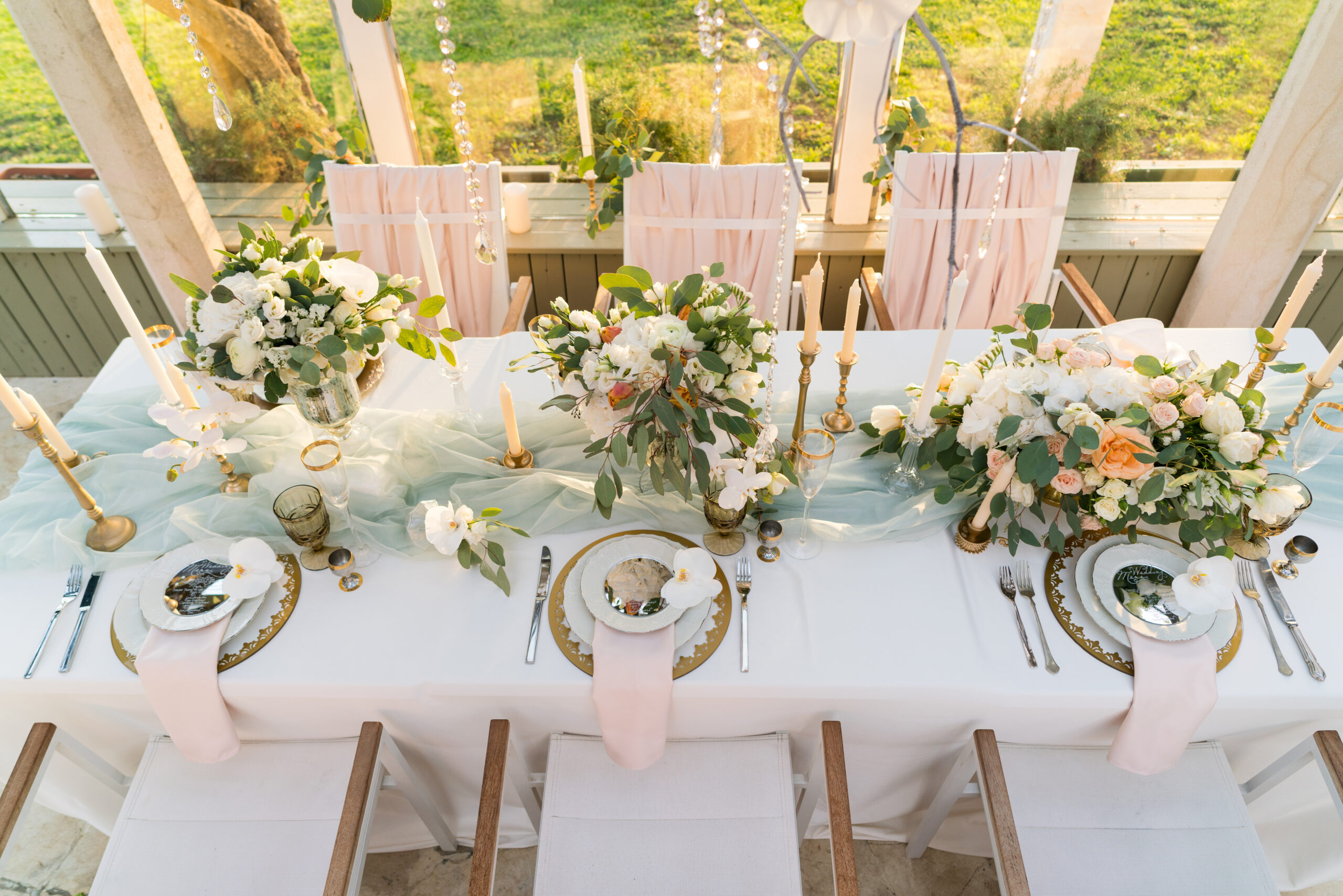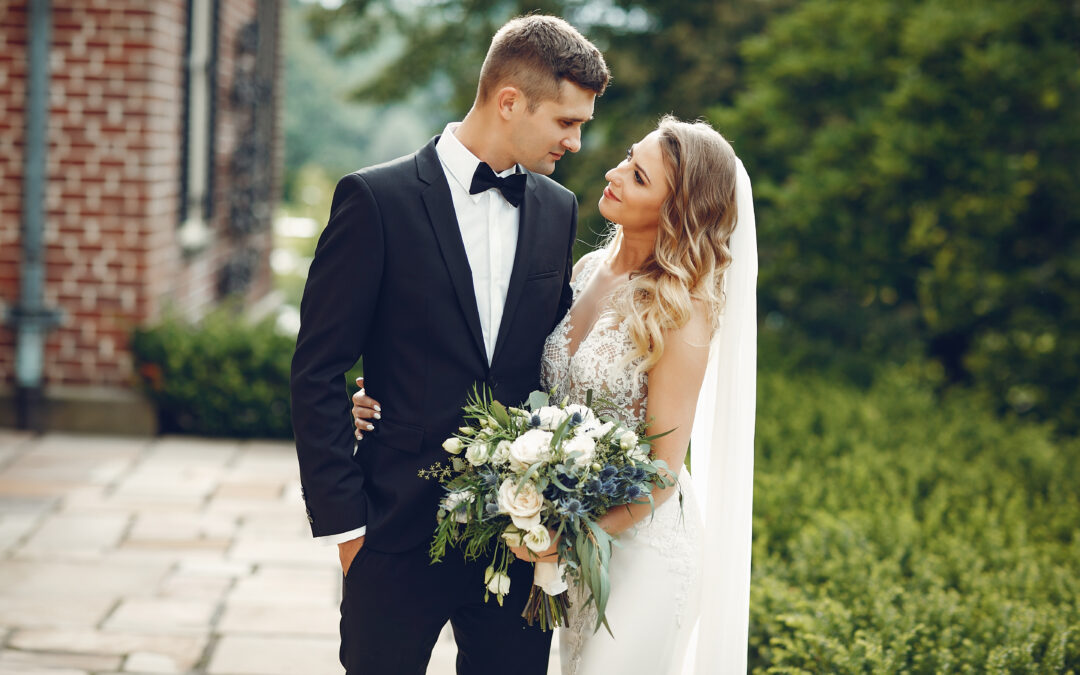With an average of 12 vendors hired and $27k at stake, wedding insurance can help provide protection when the unexpected happens on, before or even after your big day. Here’s a look at key considerations in choosing a policy that’s right for you.
By Regina Burnett and Meagan Phillips
Congratulations! With a wedding on the horizon, there’s a good chance that you’ve been visiting venues, choosing menus and making dozens of decisions for a truly memorable day. But there’s more that you can — and should — do to protect your big day from the unexpected.
Planning a wedding takes time and money, with the average wedding costing $27,000[1]. Couples typically hire as many as 12 vendors for their wedding to ensure their special day runs smoothly.[2] For this reason, adding a wedding insurance policy can be an important part of your to-do checklist.
Even the most careful wedding planning can’t completely prevent the unexpected, from forgetful photographers and suddenly shuttered venues to extreme weather and sudden family illness.
Beyond counting on vendors to show up, and hoping for clear skies, obtaining a wedding insurance policy can both help protect your special day — and provide peace of mind that reimbursement is possible for a covered loss.
What does wedding insurance cover?
Wedding insurance is a special event insurance that can provide coverage when your planning or private event gets derailed in some way. This includes venues closing, military deployment, vendors going out of business or not showing up, extreme weather, unexpected sickness or injury and more.
It can protect you in the months leading up to your wedding, at the event itself, and even after, including the making of your contracted wedding video and photos. It can also help protect you from liability if one of your guests causes property damage to the wedding venue, for example.
Consider these scenarios:
- A perfect storm: A severe storm knocks out power and disrupts travel for days, causing a couple to postpone their wedding. Because policies are based on the total anticipated cost of the wedding, wedding insurance can reimburse for the contracted expenses of caterers, property and equipment rental, transportation and other expenses, including invitations and flowers.
Note: A 14-day extreme weather exclusion applies. Purchase a policy early to ensure coverage is in place. - The runaway band: After months spent choosing a wedding band, the band breaks up before the big day, and keeps your deposit. Wedding insurance could reimburse you the contracted lost deposit paid, helping you secure a new band before your event, without missing a beat.
- A second take: When the photographer’s memory card malfunctions, and he doesn’t deliver the photos as promised, wedding insurance can provide coverage for the cost of retaking new wedding photographs after the event.

How much wedding insurance coverage do you need?
Obtaining wedding insurance that spans the entire planning time will help protect you from these types of unanticipated scenarios. There are also ancillary coverages that are built into each policy to protect against incidents that may impact your special day but not actually cancel it, including the loss of deposits, videos, wedding attire, rings and special gifts.
Policies are based on the total anticipated cost of the wedding, so the coverage protects your total financial exposure. Premiums to cover your wedding can cost as little as 1% of the total cost of your wedding.
Does your policy cover your entire financial exposure?
Not all wedding insurance policies are created equal. Some cover only the day of the event, while others cover the event and the expenses leading up to it, from vendor deposits to day-of catering and photography.
Remember, the event itself is just one area of liability, which is why it’s important to obtain a wedding policy that covers your whole financial exposure. You may not realize that when you rent a venue for your event, you will be responsible for incidents that occur at the wedding as well. For example, if someone falls while dancing and breaks their leg, you may have to cover that expense.
When is the best time to buy?
Consider buying wedding insurance as soon as you begin planning your wedding, signing contracts and putting money down as deposits. You can purchase it up to two years in advance. The price of the policy is the same regardless of when you buy it, so it’s a good idea to be covered as soon as possible.
Make sure you do everything you can to have an unforgettable wedding, including obtaining insurance coverage that protects your investment on your special day. To learn more about wedding insurance, contact The Wedding Protector Plan®.
Underwritten by Travelers, the Wedding Protector Plan®. provides wedding insurance coverage for the ceremony, reception, rehearsal, rehearsal dinner, and a post-wedding brunch without a deductible. There’s also the option to add liability coverage for the many other things that could go wrong. With the Wedding Protector Plan®, you can ensure that nearly every risk is covered. Learn more about this valuable coverage and Get a Quote or Purchase A Policy when the wedding planning begins.
*The information in this post is general in nature. Any description of coverage is necessarily simplified. Whether a particular loss is covered depends on the specific facts and the provisions, exclusions, and limits of the actual policy. Nothing in this post alters the terms or conditions of any of our policies. Please read the policy for a complete description of coverage. Coverage options, limits, discounts, and deductibles are subject to individuals meeting our underwriting criteria and state availability.
[1]The Ascent “This Is the Average Cost of a Wedding in 2022,” July 2, 2022.
[2] The Wedding Wire “2021 WeddingWire Newlywed Report: COVID-19 EDITION,” 2021.

